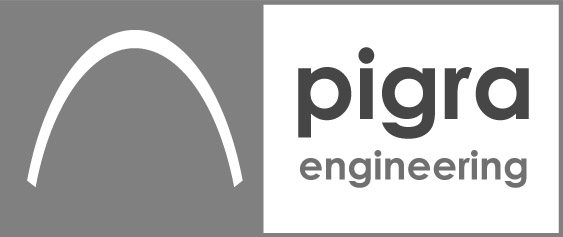Geotechnical Survey
The Geotechnical Study carried out by Pigra Engineering S. L., is a detailed analysis and survey of the land on which a structure or building is to be built. The geotechnical study includes the geotechnical ground survey and the characterisation of the underlying soil and rock.
The price of a geotechnical study by Pigra Engineering S.L., varies depending on the size and complexity of the terrain, as well as its geographical location.



The geotechnical studies that the consultants at Pigra Engineering S. L. do, are necessary to determine the stability and safety of the land prior to construction. It provides information on soil type, soil strength and load-bearing capacity of the terrain. It can also identify potential problems, such as the presence of groundwater or rocks that may affect construction.
Geotechnical reconnaissance is a resource that is widely used in the planning and execution of construction and civil engineering projects. This involves assessing the properties and behaviour of the soils and rocks present in the area where an infrastructure is to be built. This geotechnical survey is required to design the foundations of infrastructures to make them safe and efficient, also to anticipate problems and to guarantee the stability of structures.
The geotechnical survey consists of collecting information on the physical and mechanical characteristics of the soil, such as its bearing capacity, compressibility, permeability and strength. Geological and topographical aspects that may influence the behaviour of the terrain, such as the presence of geological faults, groundwater and steep slopes, are also taken into account.
In a geotechnical survey, boreholes are usually drilled to extract soil and rock samples at different depths. In situ tests are also carried out to measure the density and strength of the soil. This is complemented by laboratory analysis to characterise the mechanical and chemical properties of the samples.
All information obtained during the geotechnical survey is used for the design and construction of the necessary foundations. The design engineers determine, based on all this data, the most suitable type of foundation for the structure in question, whether it is a slab, piles, footings or other types of foundations. Ultimately, the geotechnical survey helps design engineers to estimate how the soil will respond to the loads it will receive from the infrastructure and this enables them to make a safe and efficient design.
In summary, geotechnical survey is a crucial tool for good infrastructure design in civil engineering and construction. It provides the data and information needed to make informed design decisions and ensures that infrastructures are robust, durable and able to withstand environmental stresses. Investment in a good and thorough geotechnical survey can prevent costly problems during construction and operation of the infrastructure, as well as delays in its implementation. On the other hand, it also determines the quality and safety during the construction of building projects as well as in their future operation.
An example of a geotechnical study would be the analysis of a plot of land for the construction of a flat building. The study could include analysis of soil samples to determine strength and bearing capacity, as well as investigation of the presence of rocks or groundwater that may affect construction. It could also include topographic measurements to determine landform and elevation. With this information, Pigra Engineering S.L. engineers can design a safe and stable structure for the flat building.


The geotechnical study is a fundamental aspect in the planning and construction of any building project in Barcelona. This study focuses on evaluating the geological and geotechnical conditions of the land where the project will be built, and determining how they will affect the stability and safety of the structure.
The geotechnical study includes the investigation of soil, rock and groundwater, as well as the evaluation of the geology and geomorphology of the area. The bearing capacity of the soil is also evaluated and the need for soil reinforcement or stabilization is determined.
The geotechnical study is also important to identify potential geological hazards, such as landslides, earthquakes or floods, and to assess their potential impact on the project. This is essential to ensure the safety and stability of the structure throughout its service life.
In Barcelona, geotechnical studies are carried out by consultants specialized in geotechnics, such as the company Pigra Engineering S. L., and are used for construction projects of all sizes, from residential buildings to large infrastructure works.
In summary, the geotechnical survey is a key component in the planning and construction of any building project. It ensures the stability and safety of the structure, and minimizes geological risks to guarantee a successful and sustainable project.








